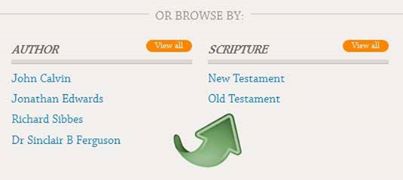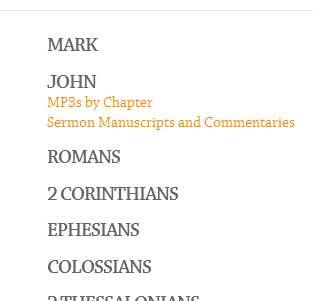Flesh and Blood Has Not Revealed this to You & John 3:16
by John Hendryx
The commandments of God were never meant to empower us but to strip us of trusting in our own ability so that we would come to an end of ourselves. With striking clarity, Paul teaches that this is the intent of Divine legislation (Rom 3:20, 5:20, Gal 3:19,24). A command or invitation with an open ended hypothetical statement such as John 3:16 ('whosover believes') does not imply the ability to fulfill it. This is especially true in light of texts such as John 1:13, Rom 9:16, John 6:37, 44, 63-65; Rom 3:11; Matt 16-26' 1 Cor 2:14 and many more which show man's moral inability to come to faith or believe the Gospel in their fallen state. In our unregenerate nature we do not want God but rather love darkness and "will not come into the light" * (John 3:19, 20).
If men are never found naturally willing to submit in faith to the humbling terms of the gospel of Christ, then how can it be good news? (Rom 3:11; John 6:64,65; 2 Thessalonians 3:2) Because in Christ Jesus, God gives to us freely, what he demands from us. In the gospel God reveals the same righteousness and faith for us that God demands from us. What we had to have, but could not create or achieve or fulfill, God grants us freely, namely, the righteousness of God (2 Cor. 5:21) and living faith that unites to Christ. He reveals, as a gift in Christ Jesus, the faith and righteousness that was once only a demand. Faith is not something that the sinner contributes towards the price of His salvation. Jesus has already paid that price in full for us. Faith is our first gasp of breath in our new birth, so to speak. It is a witness of God's work of grace already haven taken place within us (Eph 2:5, 8; 2 Tim 2:25; 1 John 5:1; John 6:63, 65).


 Those who love listening to sermons and MP3s, especially smart-phone users, check out the following page. It is a hub for MP3s on every chapter of Scripture - including only solid Reformed pastors and teachers or teachers we otherwise think are helpful. There are thousands of free MP3s here that are just waiting for you to download into your smart-phone or tablet.
Those who love listening to sermons and MP3s, especially smart-phone users, check out the following page. It is a hub for MP3s on every chapter of Scripture - including only solid Reformed pastors and teachers or teachers we otherwise think are helpful. There are thousands of free MP3s here that are just waiting for you to download into your smart-phone or tablet. This eBook by John Calvin comes complete with an actively linked Table of Contents making navigation quicker and easier. Read it in your Kindle, Nook, Sony eReader, iPad or other hand-held device.
This eBook by John Calvin comes complete with an actively linked Table of Contents making navigation quicker and easier. Read it in your Kindle, Nook, Sony eReader, iPad or other hand-held device.

 The following is an excerpt from
The following is an excerpt from  Let me address this question by telling you a story from history. In the 4th century, there was a very devout Christian lady named Monica. She was married to a prominent man who did not share her Christian faith. He was often very cruel to her, causing her physical abuse. Every day she would go to the church and pray for his conversion. Later on in his life, he did in fact become a Christian.
Let me address this question by telling you a story from history. In the 4th century, there was a very devout Christian lady named Monica. She was married to a prominent man who did not share her Christian faith. He was often very cruel to her, causing her physical abuse. Every day she would go to the church and pray for his conversion. Later on in his life, he did in fact become a Christian.